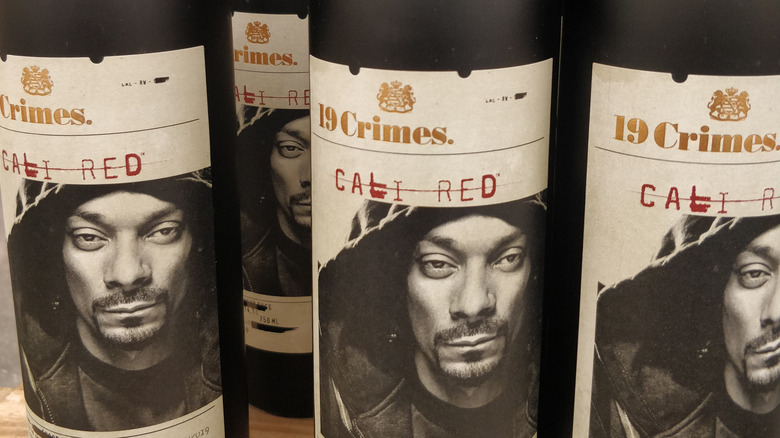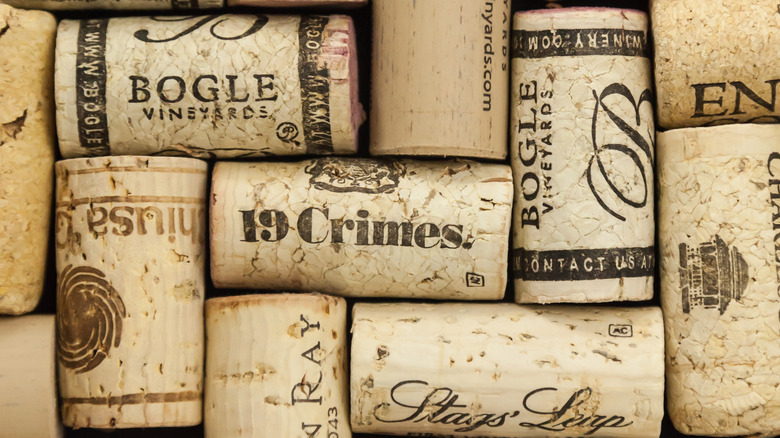Here's How 19 Crimes Wines Got Its Name
What do Australia, the British penal code of the 18th century, and a cold glass of rosé all have in common? If your answer is "Snoop Dogg," you are exactly right (and weirdly good at this game). The artist formerly known as Snoop Lion recently released Snoop Cali Rosé — a wine Bloomberg namechecks in a recent article about rosés to look out for this summer — under the popular 19 Crimes label. At only $12 per bottle, it is a frugal, fruity vino rosado, and between the price tag, the star power, and the fact that we could all use a ton of wine after the year we have just had, signs point to a successful summer for the label's latest bottle.
Despite a bit of confusion over whether or not it's okay to like a wine that associates a powerful Black artist with a brand centered around criminal activity (via The Washington Post), no one can deny 19 Crimes' success in the market. According to Forbes, the brand's use of Augmented Reality on its wine labels (download an app, point your phone at the bottle, and watch the figure on the label jump to life, Harry Potter-style, to say a few words) pushed the label into an exciting reality of its own, growing more than 60% in volume sales and 70% in value in 2017. So, what's the story behind all these talking labels, rapper-endorsed rosés, and criminal success? It's all in the name, homie.
Historians were asked to cork it in the name of a good story
According to its website, 19 Crimes is named after a list of 19 crimes outlined by the British government in the 18th century; offenses as basic as "petty larceny" and as strange as "impersonating an Egyptian." Felonies, so the story goes, that were too severe to be overlooked, but not serious enough to sentence the criminal to death. Bustle maintains that while evidence of such lists does exist, 19 Crimes is most likely taking advantage of, embellishing, and otherwise packaging (and bottling) the true history into a consumer-friendly marketing ploy.
Regardless, it is a fact that between the years of 1788 and 1868, convicts from Britain and Ireland were sent via ship to the British penal colonies of Australia and sentenced to live out the remainder of their days in Oz, according to Wine Enthusiast. 19 Crimes makes a cork for each of the 19 crimes (reading things like "stealing a shroud out of a grave" and, simply, "bigamy"), and then distributes them randomly to bottles, so that uncorking a pinot noir is like opening a depressing, accusatory fortune cookie. But it has to be said that the gimmick is compelling, and a glass of wine with a bouquet of history, and notes of colonial imperialism, is certainly bold and acidic, with a mouthfeel that can only be described as subtly salty.

